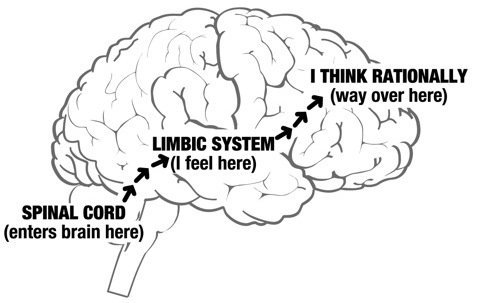By Alexandria Herrera, M.S.
Jack Welch’s exit from the helm of General Electric in 2001 didn’t reduce the company’s performance or the public’s curiosity about their internal practices. Most learning departments keep a watchful eye on GE’s leadership development programs, if only because GE has proved to be passionate about developing people and achieves long-term gains from a substantial investment in quality leadership development programs. Easy to copy—right? It can be.
The importance of leadership development is no longer a debatable topic. Any organization looking to compete in today’s fast-paced global economy has some sort of initiative in place to ensure that their budding talent has room to prosper. The tough part, however, is providing programs that matter to both your employees and your organization.
Regardless of industry or job level, individuals looking for professional development all want the same thing—skills that they can apply on the job immediately that will have an enduring impact on their job performance. When it comes to an immediate and unwavering impact on job performance, emotional intelligence (EQ) packs a powerful punch. Why? EQ skills are, quite simply, among the most important we possess. They are more important to job performance than IQ, experience, or technical ability. Studies across industry lines show that EQ predicts job performance 2 to 1 over any other skill.
The good news is that emotional intelligence can be developed. We are all capable of creating new neural pathways in our brains that allow us to behave in an emotionally intelligent manner. Do you know someone who has a co-worker that makes her blood boil every time she’s in the room with him? It doesn’t have to be this way. EQ skills empower people to deal with anyone, in any situation. When she’s able to recognize and fully understand the effect he’s having on her behavior, and use that awareness to manage how she reacts to him, she’ll do more than increase her performance—she’ll save herself the anxiety of facing him during the next team meeting.
Increasing an individual’s EQ requires far more than factual information. Sure, what EQ is and why it matters are worthy of a quick, conceptual introduction in a training, but change occurs only when we create new neural pathways—and new neural pathways require an in vivo experience of a new skill along with practice. Experiencing and practicing your EQ skills literally forge new connections between what you feel and what you think. Why is this needed? Because our brains are wired to leave us feeling emotions long before we’ve had a chance to think rationally about them.

TalentSmart’s emotional intelligence training program quite literally bridges the gap between our emotions and our reason. The training program is run regularly by industry leaders such as Starbucks, NY Life, Nestle Purina PetCare, Pfizer, and, of course, General Electric. The great news is this program is now available to all organizations in the form of a train-the-trainer certification program.
The program, titled Mastering Emotional Intelligence Level 1, is a powerful one or two-day program that delivers essential strategies for developing the four emotional intelligence skills from the #1 benchmark EQ model. Setting the stage for development begins before you even step foot inside the workshop. Valuable feedback is gathered through the Emotional Intelligence Appraisal–Multi-Rater (360) or self-report editions.
During the workshop, you are surrounded by individuals who share your goal—to develop a skill that is essential for stellar performance, both on the job and outside work. Practicing these skills when you’re removed from your usual work setting allows you to tackle important discussions and test out new strategies in a safe environment with other working professionals.
During this highly interactive training, you will learn how to handle difficult conversations and challenging situations, effectively manage behaviors that may be holding you back from optimal performance, and practice skill development by learning from experts. You will develop a plan for action that you can immediately start applying back on the job.
The EQ experts at TalentSmartEQ have created a set of activities and applied learning techniques that hit home for people. Hollywood movie clips provide an engaging method to explore the various EQ skills in action. EQ need not remain a mystery in the workplace—increased awareness and management of emotions can now be achieved by anyone through a workshop developed with them in mind.
Trainers leave the certification with all the learning materials you need for training others on emotional intelligence, including the following:
- Mastering EQ Leader Guide
- The best-selling Emotional Intelligence 2.0
- Emotional Intelligence Appraisal—report filled with action-planning ideas
- Interactive e-learning activities that include unlimited access to 10 full hours of content
- A Goal Tracking System that lets you set goals, share them with others, and track your progress
- Participant Insight & Action Guide
- Brain stress ball
- 66 Strategies for Developing EQ™
- TalentSmartEQ® articles